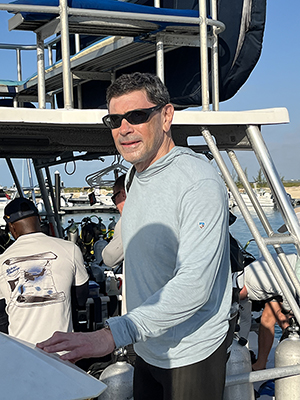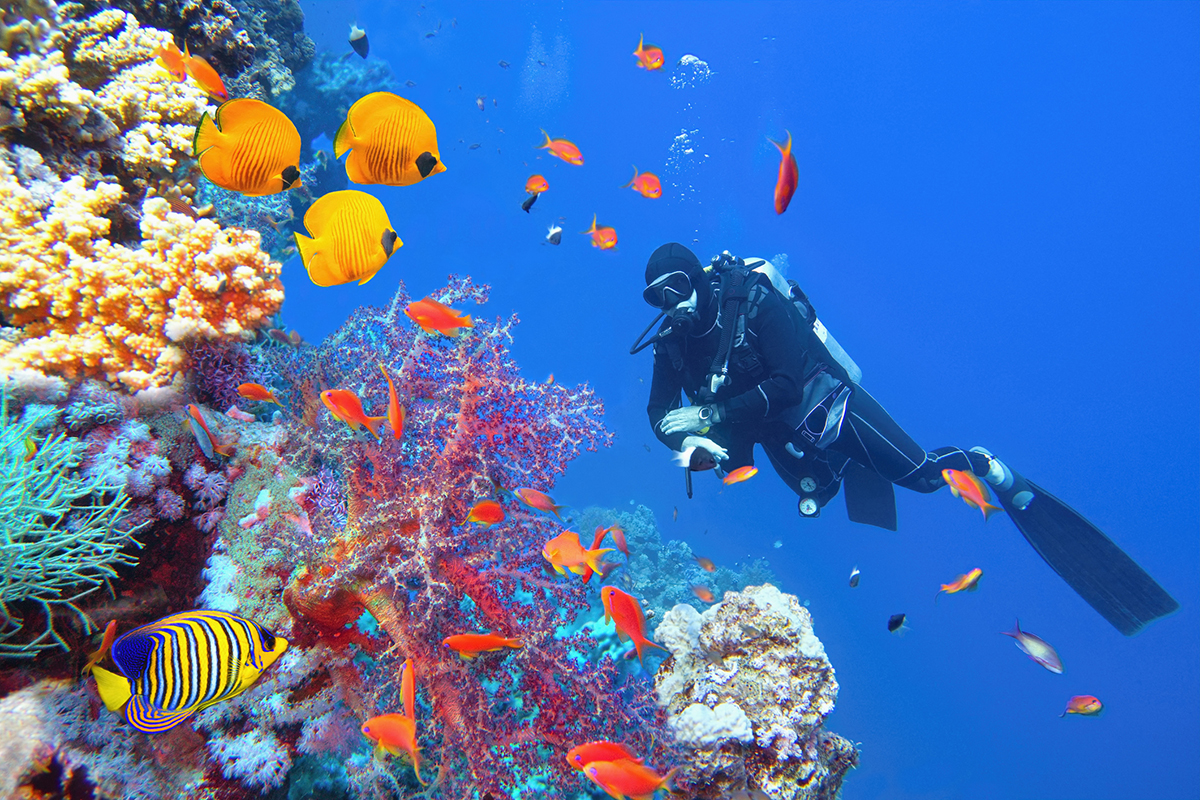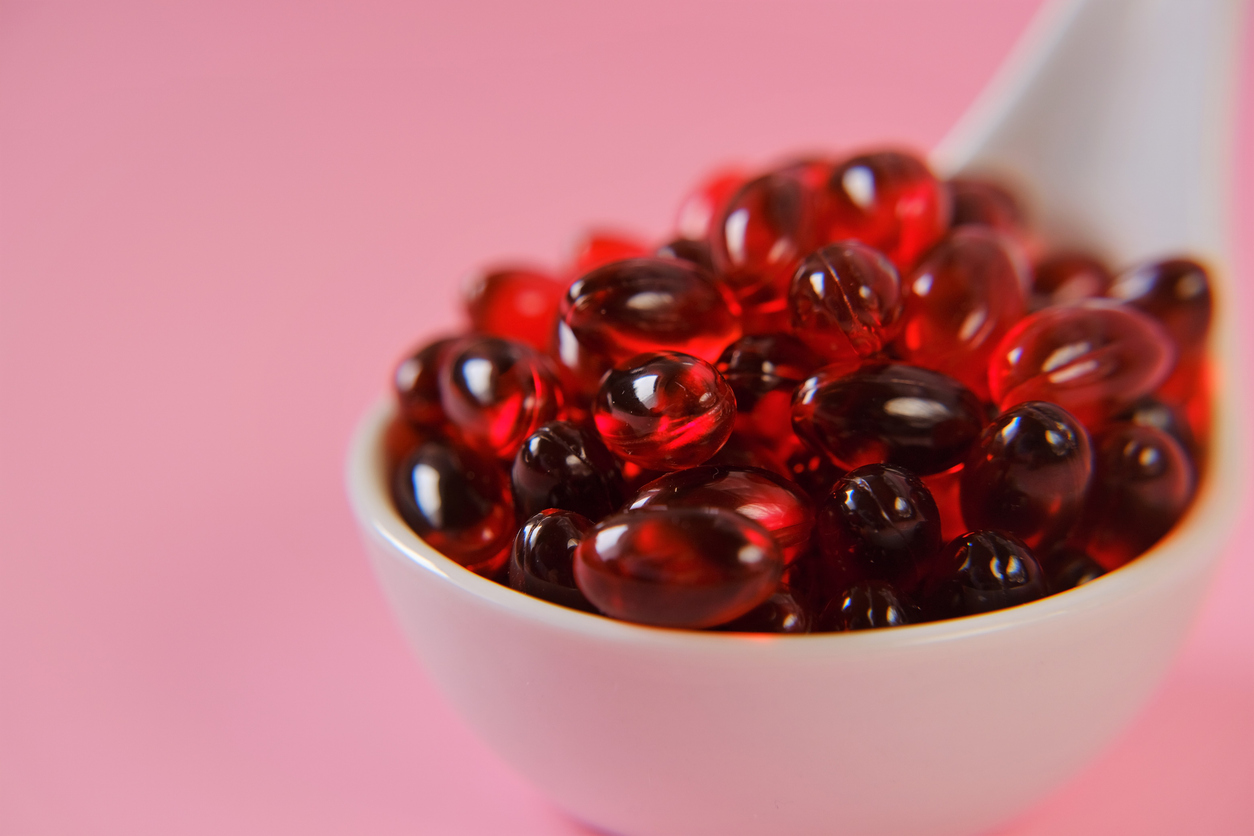I just returned from a dive trip to Turks and Caicos and wanted to share some reflections with you.
Once you’re down there, it’s a magnificent experience. You glide weightlessly over a landscape of neon-colored coral with phantasmagorical shapes. Small fish with bright markings dart around you, making you feel like you’re inside a giant salt-water aquarium. You’re on constant lookout for sea turtles, slithering eels, sea slugs, anemones, stingrays, shrimp, crabs, lobsters, barracuda, and sharks. We were even treated to a playful dolphin who swirled around us.

So this is the weird thing, and it’s kind of Zen: You’re in circumstances which can be dangerous or even deadly, underwater at 40 to 100 feet. Your air supply is your only tenuous link to survival. It’s unnatural to deliberately breathe in while you’re underwater, but you get used to it. Paradoxically, the essence of diving, unlike most for ms of exercise, is to minimize exertion. If you swim vigorously and thrash around, you’ll quickly deplete your air tank, and your bottom time will be limited.
So, as soon as you enter the water, you deliberately—and somewhat counterintuitively—try to relax, modulate your breathing, and swim gently with minimal effort. You tuck your arms in to reduce unnecessary flailing, and navigate with just gentle little kicks of your swim fins and subtle turns of your body. You watch your bubble stream and become attuned to your breath sounds to monitor your air consumption. It’s kind of like underwater yoga!
You’ve heard of VO2 max? That’s a measure of fitness that assigns a value to the amount of oxygen you can consume with maximal effort—like a supercharged engine. The more the better. Diving actually invokes the opposite—as if there were something like a VO2 min. The less air you consume, the longer your bottom time. I was happy to see that, with incremental experience, I was able to stay submerged for a personal best of 56 minutes. Next, I’ll grow gills!
But diving is not for everyone. I feel extraordinarily privileged at 71 to have the physical and mental wherewithal to continue doing it (a Brit just established the record for oldest diver at 95!). Here are some of the constraints:
Mental/Emotional: Diving requires a certain degree of intrepidness. If the idea of jumping off a boat and descending into the deep gives you intimations of panic, maybe it’s not for you, although facing your fears and overcoming them can be very empowering. Consider starting with snorkeling on the surface for a gentle entreé to underwater exploration.
Also, diving requires situational awareness. As people age, the statistical likelihood of dementia increases. At ages 70-74, it’s only 3%; but by 85-89 it’s 22%. As with driving, there’s inevitably a time to hand over the keys.
Swim competence: You don’t have to be a champion swimmer to scuba dive; actually the swimming is very gentle. But you do have to feel comfortable in the water. This is particularly important if there are ocean swells or currents that make it challenging to make your way back to the boat.
General conditioning: If you suffer from a heart or respiratory condition or are very poorly conditioned, the exertion of diving—albeit short and intermittent—might pose some risks for you. Likewise, if you’re a smoker, or have a lung condition like COPD or severe asthma, deep submersion may be a crapshoot. To paraphrase the Viagra commercial: “Ask your doctor if you’re healthy enough . . . for diving.” Interestingly, being overweight, if you’re otherwise fit, is no bar to diving. Some of the best divers I’ve known are “chunky”. After all, whales, dolphins, seals and walruses aren’t exactly svelte!
Musculoskeletal: While you’re virtually weightless underwater, there are times during your dive when you’ll have to heft a heavy metal air tank, a weight belt ranging 8 to 15 pounds or more, and assorted gear. That may add up to a carry of 50 pounds—albeit for a short time. You’ll have to make your way across the deck to where you jump (or flip backwards) in. Add to that the stress of a sometimes bucking boat in heavy swells. It can take some effort to clamber back aboard via the dive ladder, although your crew is there to give you a helping hand if necessary.
If you’ve got a very bad back, neck, knees, hips or shoulders, this might put added strain on your frame. That being said, one of the divers that I saw on a previous dive trip had a prosthetic leg and did fine. Scuba programs exist for veterans who are amputees.
ENT: If you have severe problems with your sinuses, or can’t “pop” your ears in response to pressure changes, you could be in for some serious ear pain or facial pressure when you descend. I sometimes get a nose bleed when I surface after diving, which looks gory, but is painless and quickly resolves. It’s thought to be related to small fragile capillaries bursting due to pressure changes—“barotrauma”. What helped this time to minimize nose bleeds was a stroke of genius: For the first time, I stopped fish oil pills a week before the trip. It worked!
There are also all too many people, especially past a certain age, who suffer from vertigo. Underwater you’re essentially weightless and assuming a variety of positions which can be disorienting. Plus the boat ride makes some people seasick. One senior diver on my recent trip wore a small patch behind his ear. It’s transdermal scopolamine, sometimes referred to as a Scop-patch, commonly used to alleviate seasickness on cruises.
Vision: Since I depend on glasses to see, everything would be a blur to me without a custom prescription dive mask. Alternatively, you can use a standard dive mask over contacts, but they can pop out if your mask fills with water. My mask even has some bifocal cutouts at the bottom so I can better see my watch and dive computer up close.
The “Bends”: Ascending too rapidly from deep depths can cause nitrogen bubbles to form in your blood vessels. On the relatively shallow dives, this is not really such a problem. But Turks and Caicos is renowned for its “walls”—sheer drop offs that descend to a depth of 6000 feet! Of course you only dive to a maximum depth of 80-90 feet. Deeper dives require special certification and special air mixes to obviate decompression illness.
Because the dives were deeper and more prolonged, we were each given a dive computer which automatically creates your dive profile, and notifies you if you haven’t properly decompressed while surfacing. This is accomplished by a mandatory three-minute “safety stop” at 15 feet. If you haven’t properly decompressed, the dive computer alarms, and you’re sent back down for more decompression; alternatively, you may need to abort your second dive of the day, or take a day off before resuming your dives.
Advanced dive computers compile a record of your nitrogen debt after a series of consecutive dives; especially after multiple dives you’re supposed to take 24 hours off before boarding the low-pressure cabin of a plane—which could drive stored nitrogen out of your body at too rapid a rate—to avoid tissue damage.
While there, I did a little research. Why, I wondered, did I get so tired after a couple of dives? I’d get back to the dock, exhilarated but exhausted. This usually persisted until dinner time when I’d get my second wind.
Was it exertion? Maybe so, but my dives were far less demanding than, say, a 25-mile bike ride across hilly terrain. Or was it the cold? Even when water temps are in the high 70s, prolonged immersion robs your body of heat, and you shiver for a while when you get back on the boat. A thick neoprene long-john wetsuit helps, but it only goes so far.
What I discovered is that, even in a properly-executed dive, with full safety stops, you still are off-gassing retained nitrogen for several hours once on the surface. It’s the big bubbles that are dangerous and result in painful—even life-threatening—bends. But smaller micro-bubbles form even in the best case scenario of all but the shortest and shallowest dives, triggering a transient immune response, releasing histamine, which can make you feel achy and logy. But then the malaise dissipates within hours.
Want to learn scuba diving? It makes a great family vacation and gives you something to do on a tropical getaway besides eating, drinking exotic cocktails, and tanning your hide in the sun. Once your kids or grandkids reach age ten, they are eligible to certify. Find dive courses here. Or, if in Turks and Caicos, try Dive Provo.







